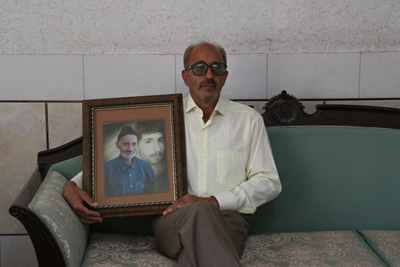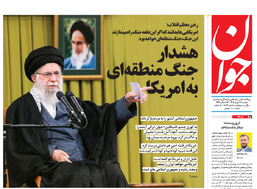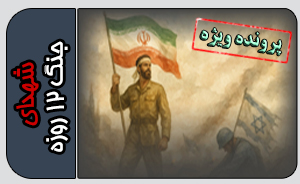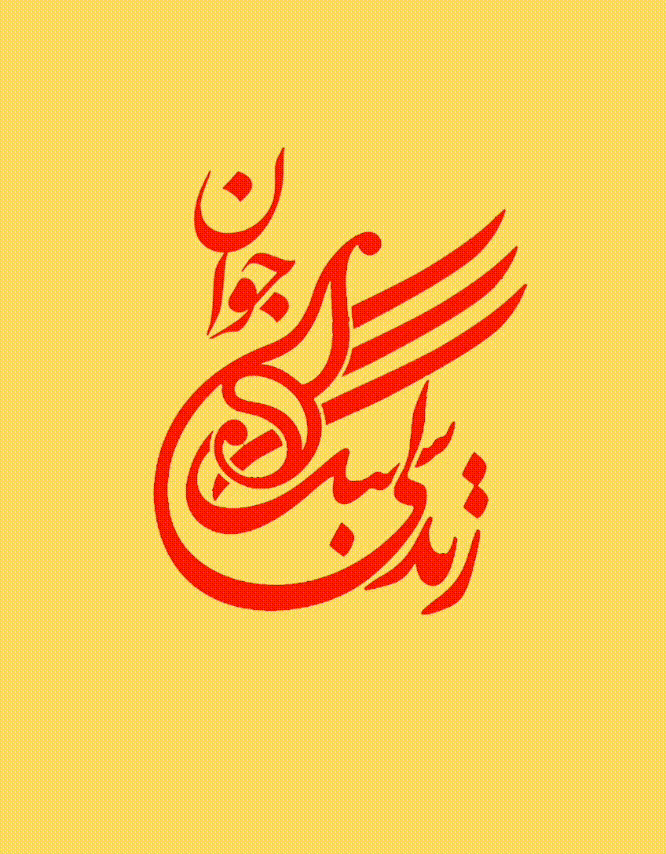 سرویس ایثار و مقاومت جوان آنلاین:
سرویس ایثار و مقاومت جوان آنلاین: جانباز محمد فصیحیدستجردی از آن دست رزمندگانی بود که از نوجوانی اقدام به جبهه رفتن کرد و، چون سن کمی داشت، بارها و بارها از حضورش در جبهه ممانعت به عمل میآوردند. او که طی یک عملیات به شدت از ناحیه سر مجروح میشود، این بار در جبهه علم و دانش قدم برمیدارد و با ادامه تحصیل، شغل معلمی را برای خود انتخاب میکند. پس از محمد، احمد برادرش نیز رزمنده میشود و در جبهههای دفاع مقدس به شهادت میرسد. گفتوگوی ما با این جانباز دفاع مقدس به مرور خاطرات جبهه رفتنها و مجروحیتش میپردازد.
Veteran Mohammad Fassihi Dastjerdi was as those fighters who went to front from teenage and because he was too young he was several times prevented from being in front. He was severely injured on his head over an operation and this time he takes his steps towards the front of knowledge and science by continuing his education and being a teacher. After Mohammad, his brother, Ahmad got a fighter as well and become martyr in holy defense fronts. This interview reviews his memories of fronts and his injuries.
خود شما از جانبازان دفاع مقدس هستید، چند درصد جانبازی دارید و چطور شد که به جبهههای دفاع مقدس رفتید؟بنده جانباز ۶۰ درصد دفاع مقدس هستم و برای اولین بار سال ۱۳۵۹ در حالی که ۱۴ سالم بود به پایگاه بسیج امام علی (ع) اصفهان رفتم تا راهی جبهه شوم. اما به خاطر سن کمی که داشتم مانع رفتنم به جبهه شدند. همان سال و سال بعد هم چندین بار این کار را تکرار کردم، اما هر بار با همان جواب مواجه میشدم. آخرین بار که من را از رفتن به جبهه منع کردند، شنیدم که در شهرستان مبارکه اصفهان به نوجوانان سخت نمیگیرند. تیر ماه سال ۶۰ یک روز صبح همراه دو نفر از دوستانم به نامهای شهید محمد فصیحی و حسینعلی احمدی به مبارکه اصفهان رفتیم تا برای رفتن به جبهه ثبتنام کنیم. ظهر بود که به پایگاه بسیج مبارکه رسیدیم و هوا هم بسیار گرم بود. داخل پایگاه داشتند ناهار میدادند که ما را هم دعوت کردند. ما سه نفر گفتیم ناهار نمیخواهیم و اگر میشود به جای آن ما را ثبتنام کنید و به جبهه بفرستید، چون از راه خیلی دوری آمدهایم. مسئول ثبتنام هم گفت صبر کنید تا ما ناهارمان را بخوریم و برگردیم به کار شما رسیدگی کنیم. بعد از کلی انتظار بالاخره آمد و به ما سه نفر گفت بایستید کنار دیوار ببینم. ما هم رفتیم کنار دیوار ایستادیم. یک نگاهی به ما انداخت و گفت:ای داد! قد شماها پنج سانتی متر کوتاه است و نمیشود شما را ثبتنام کنیم. ما هم گفتیمای کاش رفته بودیم کفش پاشنهبلند پوشیده بودیم که حداقل چند سانت قدمان بلندتر باشد. هرچه التماس کردیم ما را ثبتنام نکردند و مجبور شدیم به دستجرد برگردیم. من به دنبال درس رفتم، ولی شهید محمد فصیحی با پیگیریهایی که کرد، موفق شد زودتر از ما به جبهه برود و با شهادتش جاودانه شد.
-You are as holy defense veterans, what percentage is your veteran degree and how did you go to holy defense fronts?
- I am a veteran of ۶۰% of the holy defense and for the first time in ۱۹۸۰, when I was ۱۴ years old, I went to the Imam Ali (AS) Basij base in Isfahan to go to the front. But because of my young age, they prevented me from going to the front. I repeated this several times the same year and the following year, but each time I faced with the same answer. The last time I was barred from going to the front, I heard that in Mobarakeh, a city of Isfahan, there was lower strictness to teenagers for going to fronts. In July ۱۹۸۱, one morning, I went to Mobarakeh, Isfahan, with two of my friends, Shahid Mohammad Fassihi and Hossein Ali Ahmadi, to register for going to the front. It was noon when we arrived at the Mobarakeh Basij base and the weather was very hot. They were having lunch inside the base and they invited us. The three of us said, "We do not want lunch, and instead, register us and send us to the front if possible, because we have come a long way". "Wait until we have our lunch and come back to process your request," said the registrar. After all the waiting, he finally came and told us: "Stand by the wall! " The registrar told us three. We also went and stood by the wall. He glanced at us and said, "Oh, oh! Your height is five centimeters shorter than what we want, so we cannot register you! " We also wished we had worn high heels that were at least a few inches taller.
No matter how much we begged, they did not register us and we had to return to Dastjerd. I continued my education, but the martyr Mohammad Fassihi, with his pursuits, managed to go to the front earlier than us and was immortalized by his martyrdom.
نهایتاً چه زمانی عازم جبهه شدید؟تابستان سال ۱۳۶۵ بود که خداوند این توفیق را شامل حالم کرد تا بتوانم در جهاد در راه خدا شرکت کنم و به جبهه اعزام شوم. دفعه اول که به جبهه رفتم در زاغه مهمات پادگان دارخوئین خدمت کردم. کار ما این بود که یک ظرف را پر از نفت میکردیم و نوار فشنگ رگبارهایی را که بر اثر گذر زمان زنگ زده بودند در ظرف پر از نفت میگذاشتیم و با فرچه و قلم مو تمیز میکردیم و به خط مقدم میفرستادیم. دومین بار هم در زمستان سال ۱۳۶۵ اعزام شدم. چون هنوز دانش آموز بودم، هر وقت از جبهه برمیگشتم به مرکز آموزش شهدای محراب اصفهان که مخصوص رزمندگان اسلام بود میرفتم تا ادامه تحصیل بدهم. دومین اعزام همراه یکی از همسایهها به نام حاجعلیرضا مهدیزاده، عازم جبهه شدم. ما را به قسمت تعاون فرستادند. وظیفه ما این بود که پیکر شهدا را به پشت جبهه بفرستیم تا به معراج شهدا منتقل شوند و آنجا برایشان تشکیل پرونده بدهند و تحویل خانوادهها بشوند. همیشه سر نماز دعا میکردیم کار ما کساد باشد و کسی شهید نشود که ما مجبور شویم پیکرش را به عقب بفرستیم.
- When did you finally go to the front?
- It was the summer of ۱۹۸۶ that God blessed me so that I could participate in jihad and be sent to the front. The first time I went to the front, I served in Darkhovein garrison ammunition depot. Our job was to fill a container with oil and put the barrel of bullets that had rusted over time in a container full of oil, clean it with a brush and send it to the front line. I was sent for the second time in the winter of ۱۹۸۶. Because I was still a student, every time I returned from the front, I would go to Isfahan Altar Martyrs Training Center to continue my education. The second deployment with one of the neighbors named Haj Alireza Mahdizadeh, I went to the front. We were sent to the cooperative section. Our task was to send the bodies of the martyrs to the back of the front so that they could be transferred to Meraj shohada, where they would be filed as a case and handed over to their families. We always prayed that our work would be stagnant and no one would be martyred and we would not have to send his body back.
- به عنوان یکی از مسئولان جمعآوری پیکر شهدا با چه صحنههای دردناکی روبه رو شدید؟- گاهی محشر کربلا بود. یادم است یکبار که در سنگر نشسته بودیم، گلوله توپ به یکی از سنگرها برخورد کرد. دیدم که چطور تکههای تن رزمندهها به آسمان بلند شد و رزمندهها اربا اربا شدند. ما هم گونی برداشتیم و با نایلونی که به دست کرده بودیم در محل انفجار میگشتیم و تکههای پیکر شهدا را در آن گونیها میگذاشتیم. معلوم نبود هر قسمتی که پیدا میکنیم برای پیکر کدامین شهید است. آنجا ما این صحنههای دردناک را تجربه کردیم برای همین دعا میکردیم کسی شهید نشود که ما مجبور شویم تکههای بدن شهدا را در بیابانها جمعآوری کنیم.
-As one of the people in charge of collecting the bodies of the martyrs, what painful scenes did you face?
- Sometimes it was like Karbala. I remember one time when we were sitting in a trench, a cannonball hit one of the trenches. I saw how the pieces of the warriors' bodies rose to the sky and the warriors were torn to pieces. We picked up a sack and walked around the place of the explosion with the nylon we had in our hands and put the body parts of the martyrs in those sacks.
It was not clear that which part belonged to which martyr! There we experienced such painful scenes that always we prayed that no one would be martyred and we would not have to collect the body parts of the martyrs in the deserts.
- چه خاطرات ماندگاری از حضور در جبههها دارید؟-بار اول که به خط مقدم رفتم فرمانده گفت سریع یک سنگر انفرادی درست کنید. من تجربه خط مقدم نداشتم. نه صدای گلوله توپ را شنیده بودم و نه قدرت تخریبش را دیده بودم. نشستم روی خاکریز و با دست یک چالهای کندم که وقتی داخلش خمیده مینشستم نصف تنم بیرون بود. یک گونی هم پر از خاک کردم و لب سنگر گذاشتم. بعد یکی از بچهها صدایم زد و گفت فصیحی بیا من یک سنگر خالی پیدا کردم. من هم گفتم نه! من خودم یک سنگر درست کردم. وقتی سنگر من را دید دستش را روی دلش گذاشت و خنده امانش نداد. گفت مشخص است که برای اولین بار خط مقدم آمدهای. وقتی یک خمپاره آمد میفهمی این چه سنگری است که درست کردهای! زمان زیادی طول نکشید که چند گلوله توپ آمد و زمین را شکافت. تازه فهمیدم عجب سنگری ساخته بودم و بیخود نبود بچهها میخندیدند.
- What lasting memories do you have of being on the front lines?
The first time I went to the front line, the commander told me to build a solitary trench quickly. I had no experience of front line. I had neither heard the sound of the cannon nor seen its destructive power. I sat on the embankment and dug a hole with my hand so that half of my body was visible when I sat crouched inside. Then one of the troops called out to me and said, "Come on! I found an empty trench! " I said, "No! I’ve built my trench myself. "
When he saw my trench, he put his hand on his stomach and could not stop laughing. "It is clear that you have come to the front line for the first time! When a mortar comes, you will understand what a stronghold you have built! " he said. It didn't take long time when a few cannonballs split the ground. I just found out that I had built what a weak stronghold!
-چطور شد که به مقام جانبازی نائل آمدید؟-در دومین اعزام وقتی حاجعلیرضا مهدیزاده از خط مقدم به عقب آمد، ما را به عنوان نیروی جایگزین به خط مقدم فرستادند. ما در خط مقدم داخل سنگری بودیم. علیرضا و همرزمانش هم بودند. آنها سنگری را که سقفش پایین آمده بود، بازسازی کرده بودند. من بودم با یکی از بچههای شهرستان زیار و یکی از بچههای شهرستان کوهپایه اصفهان. بعد از خواندن نماز و خوردن ناهار در حال استراحت بودیم که صدای انفجاری بلند شد. وقتی چشم باز کردم خودم را روی تخت بیمارستان نمازی در شیراز دیدم. متوجه شدم وقتی ما خواب بودیم خمپارهای آمده و دوباره به سقف همان سنگر برخورد کرده است. سنگر که از الوارهای چوبی محکمی پوشیده شده بود شکسته و طاق سنگر پایین آمده بود. یکی از الوارها از وسط نصف شده و به وسط سر من برخورد کرده بود. دو همرزم دیگرم، اما زخمهای سطحی برداشته بودند که سرپایی درمان شدند. من از ناحیه سر به شدت آسیب دیده بودم و جمجمه سرم شکسته بود و ضربه مغزی شده بودم. مرا با هلیکوپتر به بیمارستان انتقال داده بودند. بینایی یک چشمم را از دست دادم و حس بویاییام را هم از دست داده بودم.
- How did you become a veteran?
- In the second deployment, when Haji Alireza Mahdizadeh came back from the front line, we were sent to the front line as an alternative force. We were in the front line inside the stronghold. Alireza and his comrades were also present. They had rebuilt a stronghold whose roof had collapsed. I was with two fighters from Ziar and the Koohpayeh of Isfahan. After praying and eating lunch we were resting when an explosive sound was heard... When I opened my eyes, I found myself on the bed of Namazi Hospital in Shiraz. I noticed that while we were asleep, a mortar came and hit the roof of the same rebuilt trench again. The trench, which was covered with solid wooden beams, had broken and the arch of the trench had collapsed. One of the logs was cut in half and hit the middle of my head. My other two companions, however, had superficial wounds that were treated on an outpatient basis. I was severely injured in the head and my skull was broken and I had a concussion. I was taken to the hospital by helicopter. I lost sight of one eye and lost my sense of smell.
-خیلی از خاطرات جنگ کامل برای نسل جوانتر بازگو نمیشود. اگر میشود کمی از سختیهای دوران مجروحیتتان بگویید.-زمانی که مجروح شدم تا دو روز بیهوش بودم. بعد از آن هر وقت میخواستم غذا بخورم، پرستاری میآمد و پنبه در بینی من میگذاشت. به خاطر ضربه شدیدی که به سرم خورده بود، هر وقت مینشستم از بینیام آب جاری میشد. دکترها با دو سرنگ بزرگ از نخاع کمرم آب گرفتند تا اینکه آبریزش بینیام قطع شد. بعد چشمهایم را معاینه کردند و فهمیدند عصب یکی از چشمهایم قطع شده است و دیگر بینایی ندارم. بعد دکتر اعرابی که دکتر معالجم بود، یک شاخه گل و یک صابون را که کنار تختم بود، به من داد و گفت اینها را بو کن و ببین بوی اینها را حس میکنی؟ من هم بو کردم، اما هیچ بویی به مشامم نمیرسید. آنجا بود که فهمیدم حس بویاییام را هم از دست دادهام. دکتر گفت عصبها در مغز قطع شده است و علم پزشکی هنوز نتوانسته مشکل را حل کند. دکتر هم میگفت چیزی نیست! انشاءالله خوب میشوی. من هم گفتم که راضیام به رضای خدا. در آن زمان دو بار هم برای کامل شدن معاینهها به تهران منتقل شدم. هنوز هم که هنوز است از مشکلات مجروحیتم رنج میبرم و باید همیشه دارو مصرف کنم.
-Many of the memories of the war are not fully recounted to the younger generation. If possible, tell us a little about the hardships of your injury.
-When I was injured, I was unconscious for two days. After that, whenever I wanted to eat, a nurse would come and put cotton in my nose. Because of the severe blow to my head, water flowed from my nose every time I sat down. The doctors took water from my lumbar spine with two large syringes until my runny nose stopped. Then they examined my eyes and found that the nerve in one of my eyes had been cut off and I could no longer see. Then Dr.Arabi who was my doctor, gave me a bunch of flowers and a bar of soap and said, "Smell these and see if you can smell them. " I smelled it, but I could not fell any odor. It was there that I realized I had lost my sense of smell as well. "Nerves in the brain have been cut off and medical science has not yet been able to solve the problem. " the doctor said. The doctor also said: "No problem! God willing! you will be fine". I also said: “I am satisfied with God’s satisfaction”. At that time, I was transferred to Tehran twice to complete the examinations. I still have problems with my injuries and I always have to take medicine.
-خانوادهتان چه واکنشی نسبت به مجروحیتتان داشتند؟-از بسیج دستجرد به خانوادهام خبر داده بودند که مجروح شدهام و در بیمارستان بستری هستم. یادم است زمستان بود که مرحوم پدرم برای ملاقات به بیمارستان آمد. لحظه ورود مرا نشناخت. به خاطر اینکه صورتم با خاکهای داغ تیره و سوخته و کمی محاسن صورتم بلند شده بود. فهمیدم پدرم مرا دید، اما نشناخت و رفت طرف اتاق بعدی. صدایش زدم و گفتم من اینجا هستم. پدرم بعد از دیدن من رفته بود و به مادر و مادربزرگم که در محل اسکان بودند، گفته بود اگر رفتید داخل اتاق با دیدن محمد ناراحت نشوید و گریه و زاری نکنید، چون بر اثر انفجار کمی از صورتش سوخته است. دفعه دوم که ملاقاتی داشتم برادر شهیدم احمد هم به همراه داییام و شوهرعمهام به شیراز آمدند. منتها در تعجب بودم که چرا این سه نفر وقتی آمدند ملاقات من با خودشان دوربین آورده بودند، اما یک عکس از زمان مجروحیت من نگرفتند و ساعتهایی که ملاقات نبود باهم رفته بودند در شیراز یک گردشی کرده بودند و کلی عکس یادگاری هم انداخته بودند!
How did your family react to your injury?
- Through Dastjerd Basij (mobilization) my family was informed that I had been injured and was hospitalized. I remember it was winter when my father came to the hospital to visit. My father did not know me at first. Because my face was dark and burnt with hot soil and my beard was a bit long. I realized that my father saw me, but he did not recognize me and went to the next room. I called him and said I'm here. After seeing me, my father had gone and told my mother and grandmother, who were at the accommodation: “if you went inside the room, do not be upset to see Muhammad and do not cry, because his face was slightly burnt by the explosion”. In the second time my martyr brother Ahmad also came to Shiraz with my uncle and my cousin to meet me. However, I was wondering why they had brought a camera with them when they came to visit me, but they did not take a picture of my injury, and later I found that in the hours when there was no meeting, they went on visiting Shiraz and took souvenir photos!
-دوباره توانستید به جبهه برگردید؟-نه متأسفانه به خاطر وضعیت جسمیام نتوانستم دوباره به جبهه برگردم. پس از طی کردن دوران مجروحیت وقتی حالم بهتر شد با شهید جانباز حاج غلامحسین مهدیزاده به مجتمع رزمندگان محراب رفتیم و ادامه تحصیل دادیم و هر دو معلم شدیم. شهید مهدیزاده آن زمان جانباز شیمیایی بود، ایشان هم نتوانست دیگر به جبهه برگردد و چند سال بعد هم بر اثر عوارض مجروحیتی که داشت به خیل شهدا پیوست.
-Were you able to return to the front again?
- No, unfortunately I could not return to the front due to my physical condition. After going through the period of injury, when I felt better, we went to the Altar Warriors Complex with the veteran martyr Haj Gholam Hossein Mahdizadeh, and we continued our education, and we both became teachers. Martyr Mahdizadeh was a chemical warfare veteran at that time, he could not return to the front and a few years later he joined the ranks of martyrs due to the complications of his injuries.
-گویا یکی از برادرانتان هم از شهدای دفاع مقدس است، کمی از ایشان بگویید.-احمد نوجوان که بود در کارگاه آجیلپزی کار میکرد. یادم است که یکبار در سرمای زمستان وقتی احمد از سر کار به خانه برگشت اورکتی که داشت به تنش نبود. پدرم از احمد سؤال کرد که چرا در این سرما اورکت نداری؟ احمد هم جواب داد که اورکتم را به یک نفر نیازمند بخشیدم. گفت بعداً خودم لباس دیگری میخرم. مرحوم پدرم تا زنده بود هیچ وقت این خاطره را فراموش نمیکرد و برای من هم ماندگار شد. احمد جوان پاکی بود و عاقبت هم همین صفا و پاکیاش باعث شد سعادت شهادت را به دست بیاورد و نامش را در خیل شهدای دفاع مقدس به ثبت برساند.
- One of your brothers is one of the martyrs of the holy defense, tell us a little about him.
- Ahmad was a teenager who worked in a nuts workshop. I remember once in the cold of winter when Ahmad returned home from work, he did not wear his jacket. My father asked Ahmad: "Why don't you have a jacket in this cold weather?" Ahmad replied: "I gave my jacket to someone in need. Later I will buy another dress myself. ” My father never forgot this memory while he was alive and it remained for me. Ahmad was a pure young man and finally this sincerity made him successful to achieve martyrdom and to register his name among the martyrs of the holy defense.
https://www.javanonline.ir/fa/news/۱۰۴۸۳۵۶/%D۸%AC%D۸%A۸%D۹%۸۷%D۹%۸۷-%D۸%B۱%D۹%۸۱%D۸%AA%D۹%۸۶-%D۸%A۸%D۸%B۱%D۸%A۷%DB%۸C-%D۹%۸۵%D۹%۸۶-%D۸%A۲%D۸%B۱%D۸%B۲%D۹%۸۸%DB%۸C%DB%۸C-%D۸%A۸%D۹%۸۸%D۸%AF-%DA%A۹%D۹%۸۷-%D۸%A۸%D۸%A۷-%D۸%AF%D۹%۸۸%D۹%۸۶%D۸%AF%DA%AF%DB%۸C-%D۹%۸۵%D۸%AD%D۹%۸۲%D۹%۸۲-%D۸%B۴%D۸%AF












